Goldie Jeanne Hawn (born November 21, 1945) is an American actress, director, producer, and occasional singer. She rose to fame on television’s Rowan & Martin’s Laugh-In and won an Academy Award for Best Supporting Actress for her performance in the 1969 film Cactus Flower, maintaining A-list status for more than three decades thereafter. Her other films include There’s a Girl in My Soup (1970), Butterflies Are Free (1972), The Sugarland Express (1974), Shampoo (1975), Foul Play (1978), Private Benjamin (1980), Seems Like Old Times (1980), Best Friends (1982), Overboard (1987), Bird on a Wire (1990), Death Becomes Her (1992), Housesitter (1992), The First Wives Club (1996), and The Banger Sisters (2002). She is the mother of actors Oliver Hudson, Kate Hudson, and Wyatt Russell. Hawn has been in a relationship with actor Kurt Russell since 1983.
Early life
Hawn was born in Washington, D.C., the daughter of Laura (née Steinhoff; November 27, 1913 – November 27, 1993), a jewelry shop/dance school owner, and Edward Rutledge Hawn (September 28, 1908 – June 7, 1982), a band musician who played at major events in Washington. She was named after her mother’s aunt.
Her father was a Presbyterian, and of German and English descent, while her mother was Jewish. Hawn had a Jewish upbringing.
Hawn is often reported to be a direct descendant of Edward Rutledge, the youngest signatory of the Declaration of Independence; however, genealogical research has shown that Rutledge is not an ancestor of Hawn’s. Hawn began taking ballet and tap dance lessons at the age of three, and danced in the chorus of the Ballet Russe de Monte Carlo production of The Nutcracker in 1955. She made her stage debut in 1961, playing Juliet in a Virginia Shakespeare Festival production of Romeo and Juliet. By 1964, she ran and taught in a ballet school, having dropped out of American University, where she was majoring in drama.
In 1964, Hawn made her professional dancing debut in a production of Can-Can at the Texas Pavilion of the New York World’s Fair. She began working as a professional dancer a year later, and appeared as a go-go dancer in New York City.
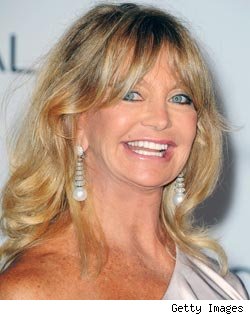
© Image credit
1960s
Hawn began her acting career as a cast member of the short-lived situation comedy Good Morning, World during the 1967-68 television season, her role being that of the girlfriend of a radio disc jockey, with a stereotypical “dumb blonde” personality.
Her next role, which brought her to international attention, was as one of the regular cast members on the 1968-1973 sketch comedy show, Rowan & Martin’s Laugh-In. On the show, she would often break out into high-pitched giggles in the middle of a joke, and deliver a polished performance a moment after. Noted equally for her chipper attitude as for her bikini and painted body, Hawn was seen as something of a 1960s “It” girl.
Her Laugh-In persona was parlayed into three popular film appearances in the late 1960s and early 1970s: Cactus Flower, There’s a Girl in My Soup, and Butterflies Are Free. Hawn had made her feature film debut in a bit role as a giggling dancer in the 1968 film The One and Only, Genuine, Original Family Band, in which she was billed as “Goldie Jeanne”, but in her first major film role, in Cactus Flower (1969), she won an Academy Award for Best Supporting Actress as Walter Matthau’s suicidal fiancée.
1970s
After Hawn’s Academy Award win, her film career took off. She starred in a string of above average and successful comedies starting with There’s a Girl in My Soup (1970), $ (1971), and Butterflies Are Free (1972). She continued proving herself in the dramatic league with the 1974 satirical dramas The Girl from Petrovka and The Sugarland Express, and Shampoo in 1975. She also hosted two television specials: Pure Goldie in 1971 and The Goldie Hawn Special in 1978. The latter was a sort of comeback for Hawn, who had been out of the spotlight for two years since the 1976 release of The Duchess and the Dirtwater Fox, while she was focusing on her marriage and the birth of her son.
On the special she performed show tunes and comedy bits alongside comic legend George Burns, teen matinee idol Shaun Cassidy, television star John Ritter (during his days on Three’s Company), and even the Harlem Globetrotters joined her for a montage. The special later went on to be nominated for a primetime Emmy. Four months later the film Foul Play (with Chevy Chase), was released and became a box office smash, reviving Hawn’s film career. The plot centered around an innocent woman in San Francisco who becomes mixed up in a murder plot.
Hawn’s next film, Mario Monicelli’s Lovers and Liars (1979), was a box office bomb. In 1972 Hawn recorded and released a solo country LP for Warner Brothers, titled Goldie. It was recorded with the help of Dolly Parton and Buck Owens. AllMusic gives the album a favorable review, calling it a “sweetly endearing country-tinged middle of the road pop record”.
1980s
Hawn’s popularity continued into the 1980s, starting with another primetime variety special alongside actress and singer Liza Minnelli, Goldie and Liza Together (1980), which was nominated for four Emmy Awards. In the same year, Hawn took the lead role in Private Benjamin, a comedy she produced. Private Benjamin, which also stars Eileen Brennan and Armand Assante, garnered Hawn her second Academy Award nomination, this time for Best Actress. Hawn’s box office success continued with comedies like Seems Like Old Times (1980), Protocol (1984), and Wildcats (1986) — Hawn also served as executive producer on the latter two — and dramas like Best Friends (1982) and Swing Shift (1984).
At the age of thirty-nine, Hawn posed for the cover of Playboy‘s January 1985 issue. Hawn posed in a giant martini glass wearing only a white collar shirt, a loosened black tie, fishnet stockings and a pair of red stilettos. Her last film of the 1980s was opposite partner Kurt Russell for the third time in the comedy Overboard (1987).
1990s
Hawn’s career slowed down after leaving Hollywood in the late 1980s, but revived somewhat in 1990 with the action comedy Bird on a Wire, a critically panned but commercially successful picture that paired Hawn with Mel Gibson.
Hawn had mixed success in the early 1990s, with the thriller Deceived (1991), the drama CrissCross and opposite Bruce Willis and Meryl Streep in Death Becomes Her (both 1992). Earlier that year, she starred in Housesitter, a screwball comedy with Steve Martin, which was a commercial and critical success. Hawn was absent from the screen again for four years while caring for her mother who died of cancer in 1994. Hawn made her entry back into film as producer of the satirical comedy Something to Talk About starring Julia Roberts and Dennis Quaid, as well as making her directorial debut in the television film Hope (1997) starring Christine Lahti and Jena Malone.
Hawn returned to the screen again in 1996 as the aging, alcoholic actress Elise Elliot in the financially and critically successful The First Wives Club, opposite Bette Midler and Diane Keaton, with whom she covered the Lesley Gore hit “You Don’t Own Me” for the film’s soundtrack. Hawn also performed a cover version of the Beatles’ song, “A Hard Day’s Night”, on George Martin’s 1998 album, In My Life. She continued her tenure in the 1990s with Woody Allen’s musical Everyone Says I Love You (1996) and reuniting with Steve Martin for the comedy The Out-of-Towners (1999), a remake of the 1970 Neil Simon hit. The film was critically panned and was not successful at the box office. In 1997, Hawn, along with her co-stars from The First Wives Club, Diane Keaton and Bette Midler, were recipients of the Women in Film Crystal Awards.
In 1999, she was awarded Hasty Pudding Woman of the Year.
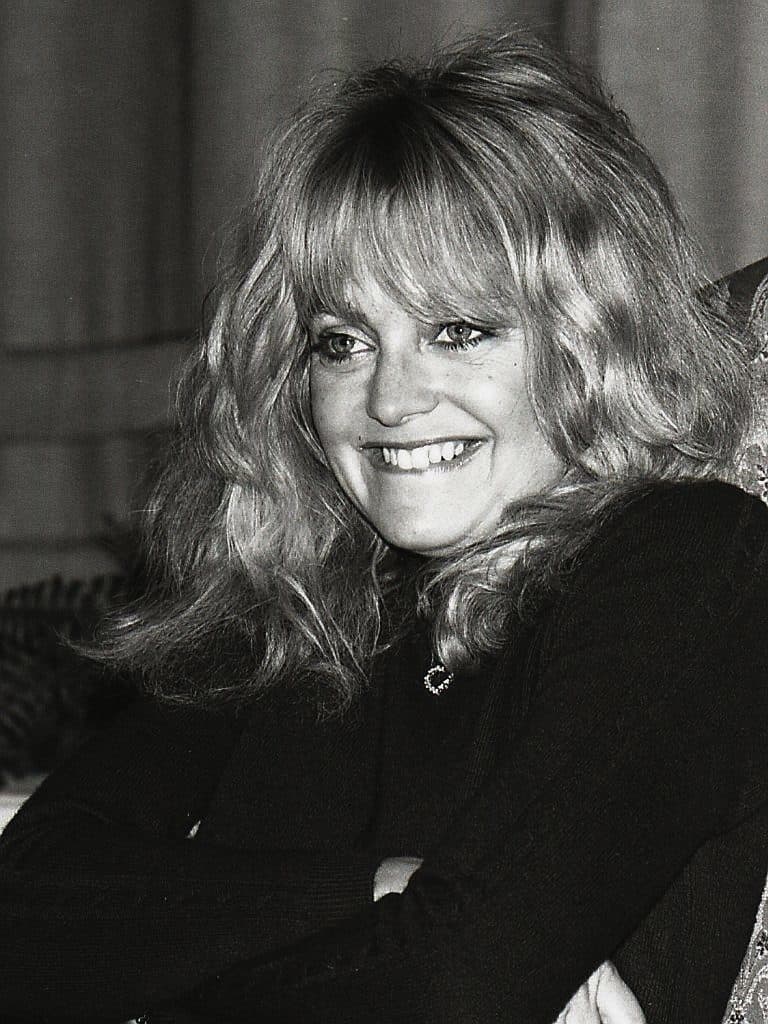
© Image credit
2000s
In 2001 Hawn was reunited with former co-stars Warren Beatty (her co-star in $ and Shampoo) and Diane Keaton for the comedy Town & Country, a critical and financial fiasco. Budgeted at an estimated US$90 million, the film opened to little notice and grossed only $7 million in its North American theatrical run. In 2002, she starred in The Banger Sisters, opposite Susan Sarandon and Geoffrey Rush, her last live action film to date.
In 2005 Hawn’s autobiography, A Lotus Grows in the Mud, was published.
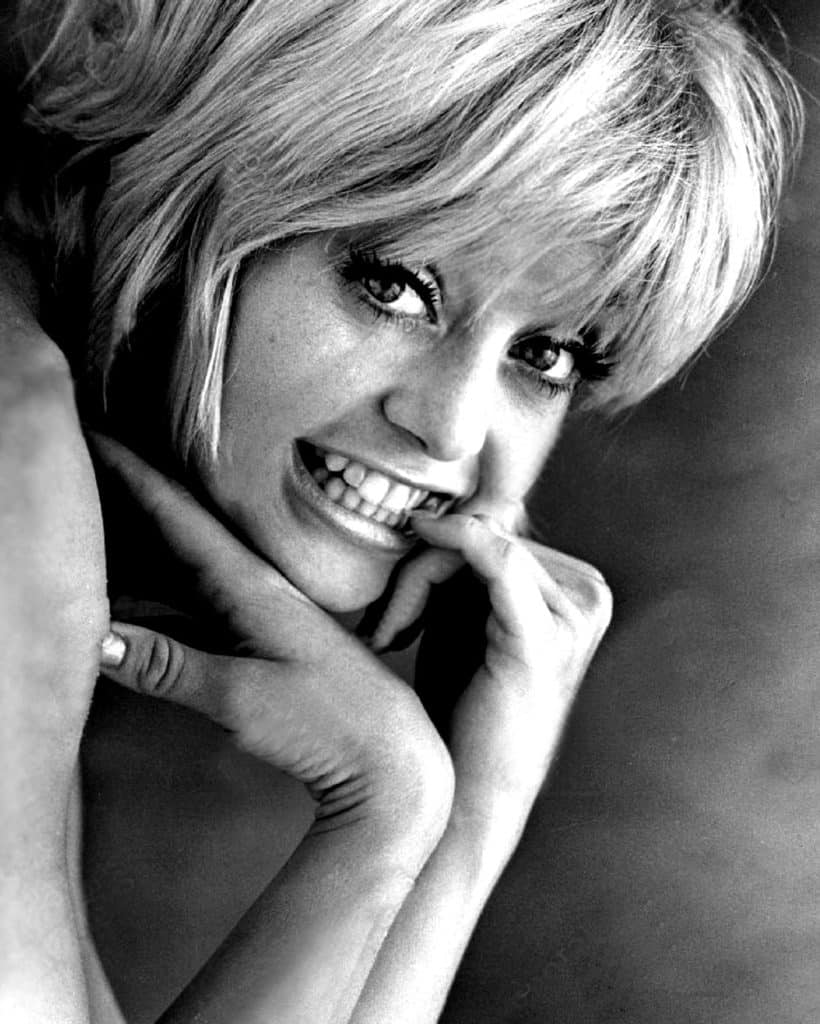
© Image credit
Personal life
Hawn has studied meditation. In a 2012 interview, she stated, “I don’t think of myself as a Buddhist. I was born Jewish, and I consider that my religion”. She also stated, “It’s not the idea of a particular religion that’s important; it’s the development of a spiritual life”.
Hawn is a supporter of the LGBT community. Speaking on nations such as Nigeria and others which have criminalized homosexuals, she denounced these laws, stating, “This is man’s inhumanity to man, of the first order.”

© Image credit
Relationships and family
Hawn’s first husband was dancer (later director) Gus Trikonis, who appeared as a Shark in West Side Story; his sister Gina played Graziella, Riff’s girlfriend. They married in May 1969 in Honolulu, Hawaii and separated in 1973. Hawn then dated stuntman Ted Grossman and Swedish actor Bruno Wintzell, but did not divorce Trikonis until June 1976, after becoming engaged to musician Bill Hudson of the Hudson Brothers, whom she met in the summer of 1975 on a first-class flight from New York to L.A. They married in July 1976 in Takoma Park, Maryland, and had two children, actor Oliver Hudson (born September 7, 1976) and actress Kate Hudson (born April 19, 1979). Hudson filed for divorce in August 1980, and it was finalized in March 1982.
Hawn has been in a relationship with actor Kurt Russell since 1983. The couple first met while filming The One and Only, Genuine, Original Family Band (1968), but became involved after meeting on the set of Swing Shift. They have a son, Wyatt (born July 10, 1986). They also own a home in Palm Desert, California. Hawn is also the stepmother of Kurt Russell’s son Boston.
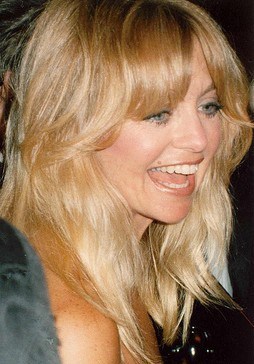
© Image credit
Filmography
- Film
- Television
- Additional credits
- Private Benjamin (1980) (additionally served as executive producer)
- Protocol (1984) (additionally served as executive producer)
- Wildcats (1986) (additionally served as executive producer)
- My Blue Heaven (1990) (executive producer)
- Something to Talk About (1995) (executive producer)
- Hope (1997 TV movie) (director and executive producer)
- When Billie Beat Bobby (2001 TV movie) (executive producer)
- The Matthew Shepard Story (2002) (executive producer)
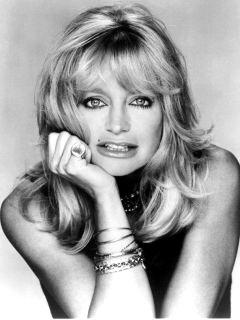
© Image credit
Videos
- “The Films of Goldie Hawn” on YouTube, movie clips
- “Hawn: From ‘Cactus Flower’ to ‘Lotus'” USA Today (May 4, 2005)
- “Goldie Hawn A Wallflower?” . 60 Minutes. CBS News (May 1, 2005)
- “Goldie Hawn’s ’10 Mindful Minutes’ for Children”. ABC News. September 9, 2011.
